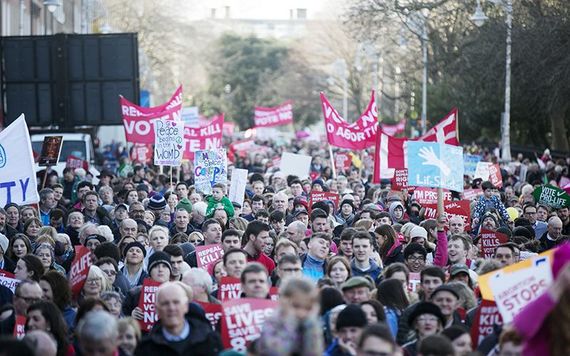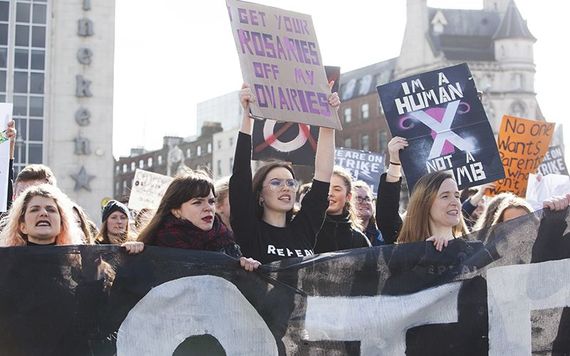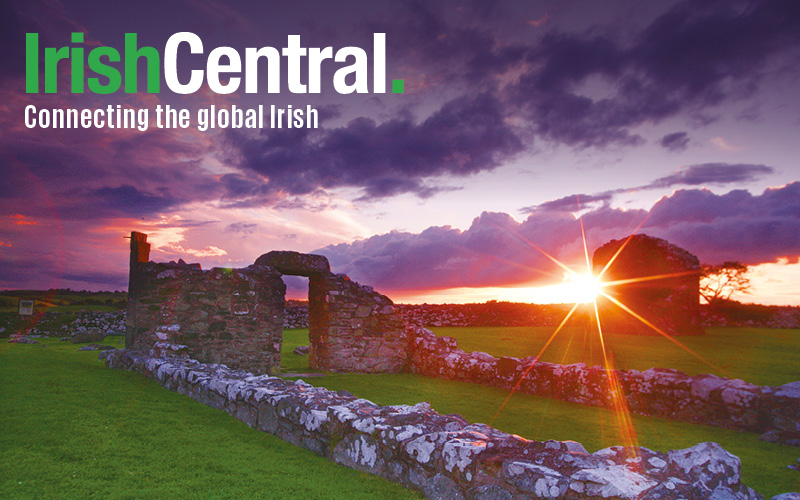Back in 1983, two thirds of the Irish people voted to insert the following language into their constitution in a referendum: “The State acknowledges the right to life of the unborn and, with due regard to the equal right to life of the mother, guarantees in its laws to respect, and, as far as practicable, by its laws to defend and vindicate that right.”
What became the 8th Amendment was largely driven by the Catholic Church and conservative forces, who were cognisant of a liberal abortion regime in the United Kingdom and the recognition of a constitutional right to abortion in the United States, and wanted to prevent something similar here in Ireland.
Read More: Ireland abortion debate heating up as Ireland decides its next step
Since then, this vexed issue has been the subject of four more referendums. Advocates for abortion rights have charged successive governments with being too cowardly to tackle it head-on. This accusation was levelled again when, in 2016, the government created a citizens’ assembly to deliberate the issue and make recommendations.

Pregnant woman with doctor. Credit: iStock
Most observers were surprised when the assembly voted rather convincingly that a referendum on removing the 8th Amendment should be held and that abortion should be far more widely accessible than is currently the case.
Political watchers were even more taken aback when the Oireachtas (Irish parliament) Committee on the 8th Amendment, formed in order to consider how to act upon the recommendations of the citizens’ assembly, voted by a substantial margin in favour of the repeal of the controversial amendment and endorsed legislation to ensure that would permit abortion without restriction for the first 12 weeks of a woman’s pregnancy.
Now, the campaign whether to repeal or retain the 8th Amendment is in full swing. On Friday, May 25th, the Irish people will be asked Yes or No. If they vote Yes, the present constitutional text will be replaced by this sentence: “Provision may be made by law for the regulation of termination of pregnancies.”
Herein lies significant political complexity and the key point that both sides in the debate will need to persuade the large middle ground of the Irish electorate on. The pro-repeal side argues that the 8th must be repealed because it hasn’t worked (i.e., Irish women still have abortions; they just do so overseas or take potentially unsafe pills.) and that the referendum is solely about removing an arguably impractical and unjust provision from the constitution.

Pro-life demonstrators. Credit: RollingNews.ie
It isn’t that simple, however.
Previous polls have repeatedly shown that a clear majority of voters believe that the status quo needs to change. Most think that abortion should be legal in cases of rape, incest, fatal foetal abnormality and when the pregnancy causes a serious threat to the life (and possibly the health) of the woman.
But equally, a large segment of the people are profoundly uneasy with abortion being available without restriction for what amounts to three months, which is nearly certain to be the outcome in the event of a Yes vote. Indeed, those campaigning for a No vote have been circulating the statistics, particularly from the UK, about the high percentage of pregnancies elsewhere that end in abortion and warn that this is not desirable in Ireland.
Read More: American pro-life groups attempt to shutdown Irish Repeal Facebook page
In virtually every referendum, there has been a constituency in this country who vote No for a broad assortment of reasons, frequently ones that have little or nothing to do with the question they are being asked. Additionally, provoking entirely legitimate doubts and appealing to the electorate’s innate sense of caution have been successful tactics employed by referendum campaigners here in the past. The No side is borrowing from this playbook.
On the other hand, while they are very different issues, the Yes side is doubtless buoyed by the strong backing here for marriage equality in 2015 insofar as it reflects a move away from a once dominant Catholic conservatism. Promoters of a Yes vote are also attempting to keep the focus on the incredibly difficult and heartrending plight faced by women and their families who have received awful diagnoses and have then been forced to procure abortions in other countries, far from home. Further, they claim that it is impossible to legislate for exceptions like rape or incest.

Pro-choice demonstrators. Credit: RollingNews.ie
Although the campaign has not yet proven quite as divisive as some predicted, there are several weeks left to go and the rhetoric will intensify greatly on the two sides. Already, social media is a battleground and those whose view doesn’t necessarily align squarely with hard-line activists on either side have been immediately subjected to harsh scrutiny and/or abuse – I can speak from personal experience on this front – from one or both sides. Speculation abounds about the roles “fake news” on social media and foreign money might play.
It is crucial that neither side alienate the middle ground between now and May 25th. In this vein, it is notable that shrewd advocates for repeal eschew contested terms like “reproductive rights” and adroit supporters of retaining the 8th disavow posters featuring gruesome imagery.
Read More: Irish government and Catholic Church clash over 8th amendment messages
At this stage, the polls, as well as my own general sense of the overarching mood and the political maths, indicate that the Yes side has the advantage. But things can, and often do, change extremely quickly in the latter days of Irish referendum campaigns. It will be fascinating to monitor unfolding developments.
As in almost every close election, the amorphous and indefinable middle ground will decide it. Those in Ireland and beyond with passionate viewpoints on probably the most contentious issue there is nervously await their verdict.
Larry Donnelly is a Boston attorney, a Law Lecturer at NUI Galway and a media commentator on politics, law and current affairs in the US and Ireland.




Comments